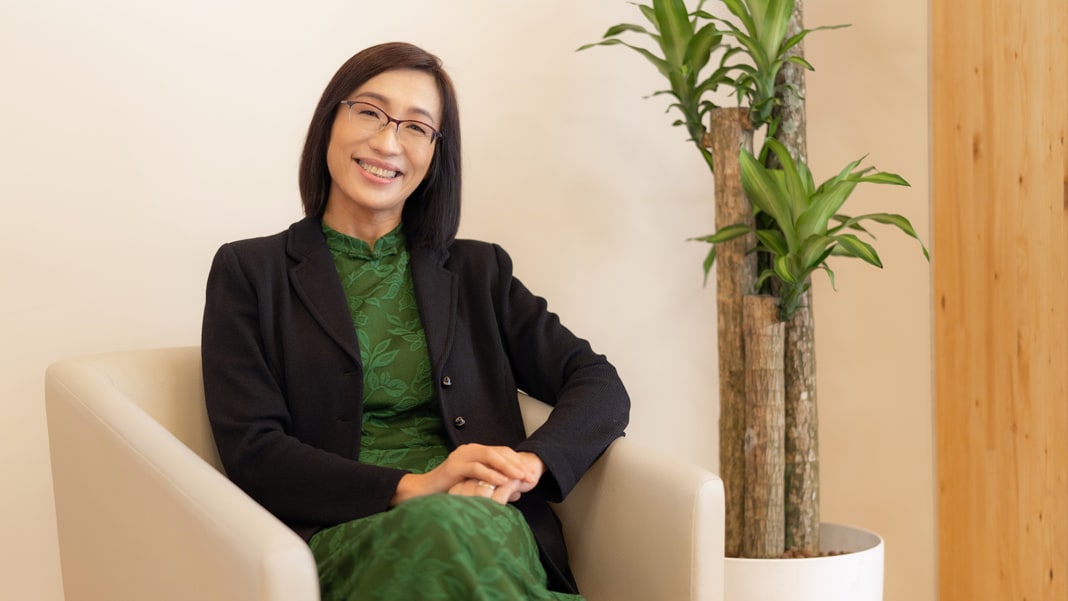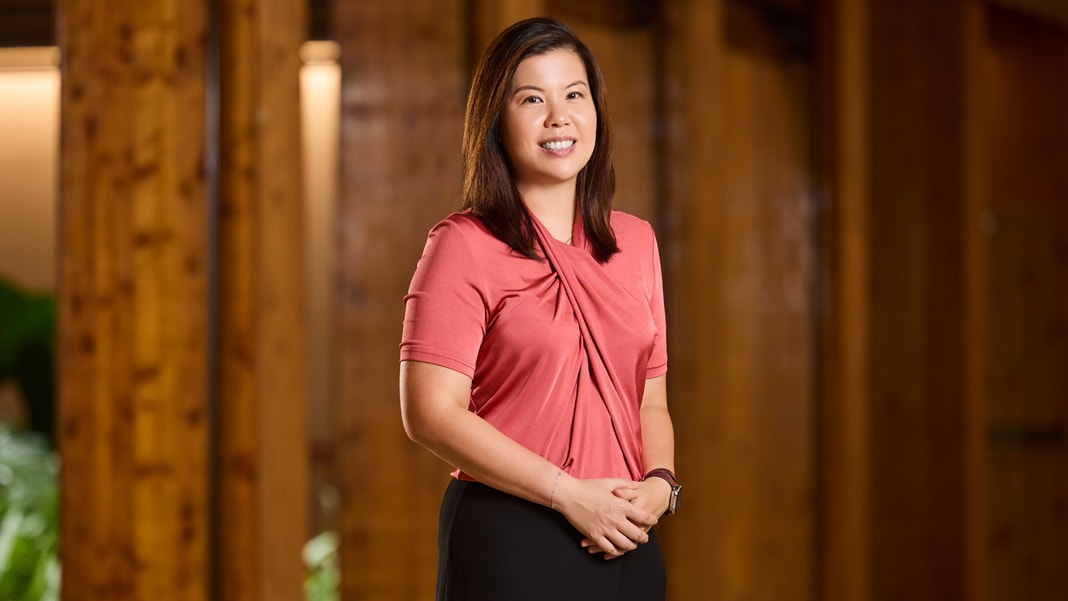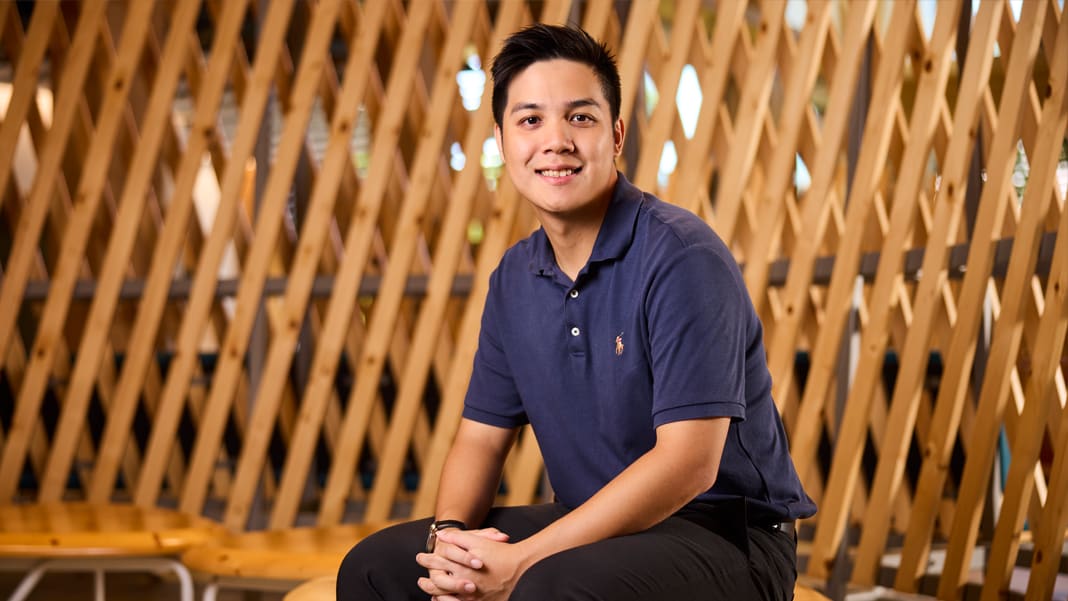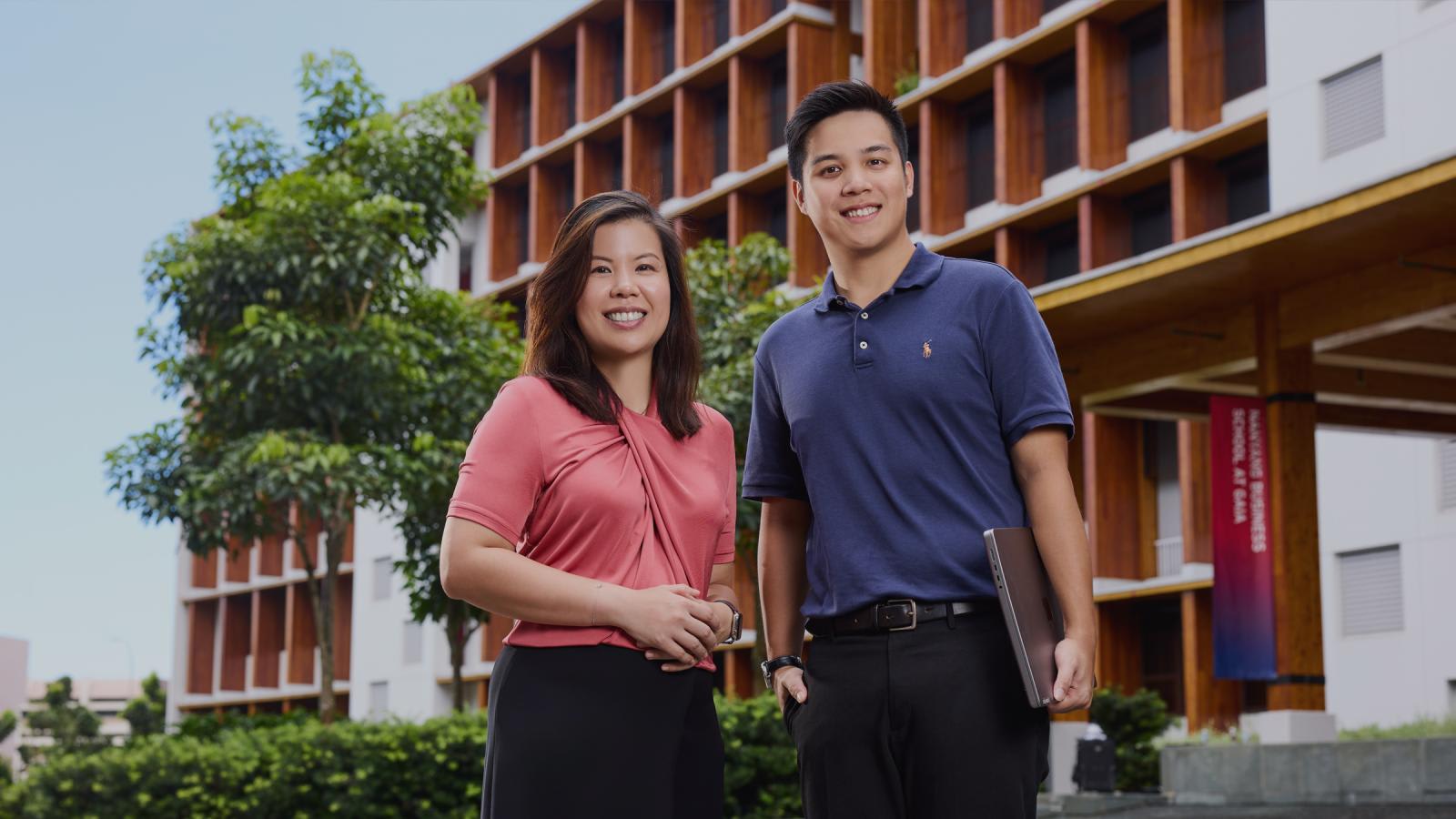Having worked in start-ups and global corporations in the fields of data science and AI across different industries, Ms Janet Uy had built a formidable career in tech. But after 18 years in the industry, she was ready to take her career to the next level.
“I had been in technical roles throughout my career but I wanted to transition into a more strategic role – where I could influence decisions at the business level,” shared Ms Uy, 40, who currently leads a team at Microsoft as a senior cloud solution architect manager.
Filipino by birth, Ms Uy moved to Singapore for her graduate studies in 2007, and became a citizen in 2023, having even served in the Singapore Armed Forces Volunteer Corps. “Singapore has been good to me and that was my way of giving back,” she shared.
Although she has a master’s in industrial engineering, Ms Uy described the more corporate aspects of her career as having been learnt “on the fly”. As such, when the time came for her to sharpen her leadership and management skills, Ms Uy sought out a more intensive postgraduate programme.
In the Executive MBA (EMBA) programme offered by Nanyang Business School (NBS) at Nanyang Technological University (NTU), Ms Uy found her ideal academic fit: A culturally plugged-in, interdisciplinary programme that draws from both the business and technology worlds, powered by NBS’ unique position as a premier business school within a leading technological university.


“What differentiates the NBS postgraduate programme from others is our ability to bridge business with technology and sustainability, drawing on NTU’s global standing in science and innovation,” said NBS dean Professor Jun Yang. “We are part of the vibrant tech and innovation ecosystem of NTU, which allows us to integrate technology into business education in ways few others can.”
This integration is evident in the Nanyang EMBA’s curriculum, which includes cutting-edge modules such as ‘Identifying Opportunities in Blockchain and AI’, ‘Digital Transformation and Enterprise 4.0’ and ‘Knowledge and Technology Management’. The programme’s sustainability focus is equally robust, with modules such as ‘Corporate Sustainability: Strategies and Innovations’.
Programmes are based in Singapore, a global hub with key connections to the region, and amplified by NBS’ focus on providing its students with global experiences: a stint at Carnegie Mellon University for Master of Science in Financial Engineering (MFE) students, and international modules at Tsinghua University in Beijing and University of California, Berkeley – institutions strategically chosen for their technological edge alongside their top global rankings – for Nanyang EMBA students.




FROM TACTICAL TO STRATEGIC: EVOLVING THE LEADERSHIP MINDSET
The Nanyang EMBA is designed for senior leaders with at least 10 years of work experience (five of them in a leadership role), with a focus on strategy and leadership within an Asian context.
Its integrated curriculum – including modules such as ‘Developing Strategic Capabilities’, and ‘Leading Business Analytics in the New Economy’ – enables students to connect short-term tactics with long-term organisational vision. This is reinforced through international study modules at top institutions like China’s Tsinghua University and UC Berkeley in the US, where students gain comparative perspectives from two global economic giants.
Through the Nanyang EMBA, Ms Uy learnt to take a more big-picture approach to her decision making. The stints at Tsinghua and UC Berkeley broadened Ms Uy’s horizons. She learnt firsthand about the rise of fintech in China and leadership styles in Silicon Valley. Her diverse cohort of classmates added to the cultural enrichment. “I had the opportunity to meet people from many countries – those in healthcare and banking, entrepreneurs and business owners – and to learn about the challenges they face.” said Ms Uy. “The exposure has been invaluable.”
Her experience also sharpened her cultural intelligence (CQ), a capability she now sees as essential for leading regional teams. NBS has embedded CQ development throughout the Nanyang EMBA curriculum with a dedicated module, complemented by immersive China-focused modules at Tsinghua University, including ‘Technology and Innovation in China’ and ‘Doing Business in China’, which provide insights into one of the world’s most dynamic business environments.
As Prof Yang explained: “CQ is not just part of the curriculum – it’s embedded into the learning journey, supported by our dedicated Centre for Leadership and Cultural Intelligence and intentionally diverse classrooms.”
“CQ, to me, is the ability to understand where someone else is coming from, culturally and professionally, and act with that awareness in mind,” Ms Uy reflected. “It becomes a tool for us to make better connections. It’s something I apply every day while managing colleagues in India, Korea and Australia.”

AN EDGE FOR THE EARLY CAREER PROFESSIONAL
While the EMBA is tailored for senior leaders, NBS also offers a suite of MSc programmes aimed at helping fresh graduates gain a competitive edge from the outset.
One such graduate is Mr Ong Juan Xun, who, after completing his Bachelor of Business (Banking and Finance) at NBS, chose to immediately continue his academic journey by enrolling in the Master of Science in Financial Engineering (MFE) in 2023, a rigorous, cross-disciplinary programme developed in collaboration with NTU’s School of Physical and Mathematical Sciences.

“I had a foundation from my undergraduate degree, but I needed more technical depth to break into the front office,” said Mr Ong, 26, now an analyst in FX options trading at Nomura Singapore.
The MFE enabled him to bridge the gap between theoretical finance and practical application. Students in the programme explore topics like stochastic calculus, derivatives pricing and machine learning for trading strategies – skills that are in demand in the fintech and investment banking space. The programme’s technology integration is evident in specialised electives such as ‘Programming Web Applications in Finance’ and ‘Artificial Intelligence Techniques in Finance’, which prepare graduates for the increasingly digital finance landscape.
Mr Ong said the full-time programme gave him the structure and immersion he needed to build the necessary skills quickly, and helped him stand out from the competition. He also highlighted the overseas segment done in collaboration with Carnegie Mellon in the US that was part of the MFE. “The classes were very practical, involving real-life experiences, such as machine learning to create trading strategies, or options valuation using programming,” he shared.
Doing the MFE at NBS gave Mr Ong, who is Singaporean, a chance to meet people from all over the world, while staying close to his friends and family. “Working together on group projects and hanging out in the cohesion event taught me how to navigate cultural nuances, communicate clearly and manage team dynamics,” he shared. “At times, there might be communication barriers but I learnt from the experience and improved my CQ. And it is helpful in my current job environment as I have colleagues from diverse backgrounds.”
POSTGRADUATE PORTFOLIO
According to Prof Yang, aligning a master’s degree with one’s career goals is critical – whether to gain specialised knowledge or to prepare for a career shift. “Our curriculum is designed with this in mind, supported by interdisciplinary learning and strong industry exposure,” she added.
The following is a selection of NBS’ postgraduate programmes, each designed to develop future-ready leaders.
•Nanyang MBA: NBS’ flagship programme, the flexible 12-month or 18-month journey allows participants to gain deep, real-world insights into business models, management philosophies and rigorous academic theories
•Nanyang Professional MBA: With an alternate weekend format, the 18-month part-time programme is designed to accelerate the development of high-potential leaders with minimal downtime
• Nanyang Fellows MBA: A full-time (one-year) MBA programme for exceptional public sector senior executives keen to gain deep business knowledge and lead their teams for the future of work
• Nanyang Executive MBA: A 13-month part-time programme that empowers senior leaders to innovate and drive impactful transformation in Asia
There are 11 master’s programmes, including MSc in Accountancy, Financial Engineering, and Marketing Science.
DEVELOPING DEPTH, NOT JUST SPEED
Unlike short online certifications, postgraduate degrees like the MFE offer a rigorous and immersive curriculum that fosters deeper expertise and long-term professional growth.
Prof Yang noted that in today’s fast-changing world, professionals need more than just technical know-how. “Postgraduate degrees offer structured, in-depth learning that short-term certifications often cannot match. They help develop strategic thinking, leadership skills and cultural intelligence – key qualities for navigating a hyperconnected global economy,” she said.
“I’ve done short courses before and they were useful but I needed a longer-term investment in my growth,” said Ms Uy. “The EMBA offered depth, structure and the chance to practise leadership in real-world settings.”
Mr Ong shared: “The full-time nature of the MFE really immersed me in the subject matter. It gave me the time to go deep – and build relationships with classmates from all over the world.”

A POSTGRADUATE EXPERIENCE PRIMED FOR THE FUTURE
Emphasising the interconnections between disciplines at NBS, Prof Yang said: “Businesses today do not operate in silos, and neither do we. We integrate core business disciplines with digital strategy, data science and innovation, and collaborate closely with NTU’s top institutes in engineering, AI and sustainability, equipping our students with the agility to lead through disruption.”
This collaborative approach is particularly evident in NBS’ commitment to shaping global impact makers who can navigate the complex intersection of business, technology and sustainability. Through partnerships with industry leaders and real-world project work, students are prepared to drive meaningful change across sectors and borders.
Moreover, Singapore’s strategic location in Asia gives NBS students access to a wealth of opportunities for internships, real-world projects and networking with MNCs and startups alike. “Singapore is a strategic launchpad for globally-minded leaders,” said Prof Yang. “Our programmes combine Asian and Western learning approaches with a strong emphasis on cultural dexterity, equipping students to lead and make an impact across the region and beyond.”
She added: “Whether it’s leading digital transformation, building sustainable enterprises or navigating global markets, we prepare our graduates not just to meet today’s challenges, but to shape the world ahead.”













